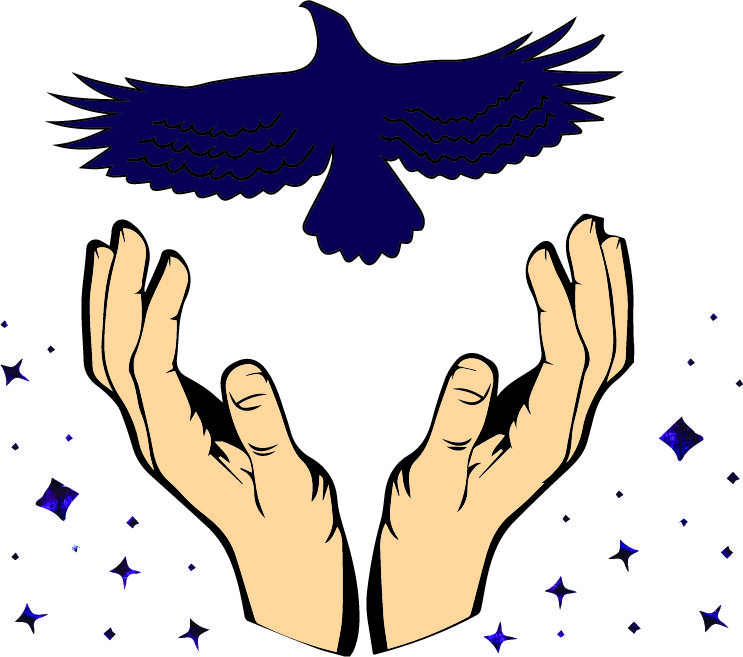Six years old, first grade at an Anglican school, we prayed every morning.
Curious and eager to please, I loved school. I didn’t understand religion. My family weren’t churchgoers, so Christianity was just another class; something to learn, something where I could follow instructions, and something that I could try to excel in. Our teachers told us constant tales of God talking to them through coincidences and the feelings within their heart – and of course he did. I believed in magic and the fantasy lands of the books I was persistently reading – what was then unbelievable about a loving God that you never heard as an audible voice? I went through the motions, I prayed, I read the bible, but it never sank in.
Ten years old, fifth grade, I refused to pray or participate.
It was a coincidence. There was a documentary playing on the television about climate change. The image of a polar bear trapped on a shrinking piece of ice captured my imagination. I cried for hours. Days later in class I ask the teacher whether animals go to heaven, she hesitates, doesn’t answer the question, and eventually says no. Perhaps it was a subtle form of rebellion. From that time Christianity went from something I half-heartedly participated in without thinking much of it, to something I actively disliked and wanted to prove wrong. It was little things, refusing to participate in Christian studies classes, scowling and rolling my eyes during compulsory Chapel services. It was petty, but at the time it felt important. In grade seven I would make a friend who took a more aggressive stance on the subject. Finding contradictory Bible verses, muttering amongst ourselves during classes and chapels, quietly disparaging the religion and everyone around us who believed it. It felt like a kind of superiority, resisting the faith others had. Didn’t that make us stronger than them?
Sixteen years old, twelfth grade, confused and conflicted.
There came forth a peculiar kind of peer pressure. The majority of my classmates were in happy, enthusiastic ‘relationships with God’. The rebellious urges were now gone, who was I to judge the beliefs of my friends? I could abstain without actively trying to poke holes in other’s worldviews. But it’s insidious, the way we see happiness. I began to question: am I happy, when everyone else seems happy? Wouldn’t it be simpler to just be content and not constantly questioning and be confused about the nature of the world? Instead of feeling somehow superior I felt like I was missing something. That there was some great secret I was supposed to have grasped, but it somehow slipped through my fingers. I remember a distinct unease as I started to think, surely all of these people can’t be wrong. I may have stopped judging those who had faith, but I hadn’t ever been able to find that blind acceptance of all the hypocrisy and unpleasantness that I saw in the Bible. I cried after a chapel service one day, because I had begun to believe this must be the true way of the world, and it wasn’t a way I felt comfortable with at all.
Nineteen years old, second year of university. Free, and contented with not having the answers yet.
It was almost instantaneous, like a spell lifting, the moment I finished school and left that environment any compulsion to pursue Christianity finally evaporated. I felt free to research different kinds of spirituality with no pressure to commit to the one type of faith. The false dichotomy, religious or atheist, suddenly seemed so unnecessary. I realised that the urge to find meaning in the world, to find some spiritual significance, can exist independently to the pressure of a prescribed religion. I can now look around me with a new vision and think seriously about what it was I believe, and come to terms with the fact that I don’t quite know yet. I know I believe that learning and understanding are always worthwhile goals, I don’t think I believe in an afterlife, but I also believe I could be wrong. I can look at the world and think there must be something more than what I can perceive. But, I’m content to take my time finding out.
We acknowledge the Ngunnawal and Ngambri people, who are the Traditional Custodians of the land on which Woroni, Woroni Radio and Woroni TV are created, edited, published, printed and distributed. We pay our respects to Elders past and present. We acknowledge that the name Woroni was taken from the Wadi Wadi Nation without permission, and we are striving to do better for future reconciliation.
